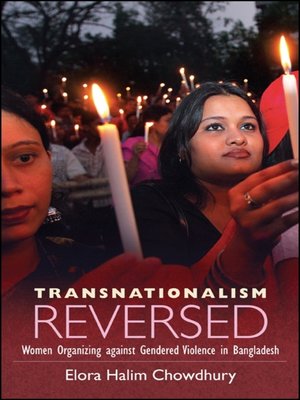Transnationalism Reversed
ebook ∣ Women Organizing against Gendered Violence in Bangladesh · SUNY series, Praxis: Theory in Action
By Elora Halim Chowdhury

Sign up to save your library
With an OverDrive account, you can save your favorite libraries for at-a-glance information about availability. Find out more about OverDrive accounts.
Find this title in Libby, the library reading app by OverDrive.



Search for a digital library with this title
Title found at these libraries:
| Library Name | Distance |
|---|---|
| Loading... |
Examines transnational movement building through a focus on acid attacks and organizing against acid violence in Bangladesh.
Winner of the 2012 Gloria E. Anzaldua Book Prize presented by the National Women's Studies Association
Acid attacks against women and girls have captured the attention of the global media, with several high-profile reports ranging from the BBC to The Oprah Winfrey Show. In Bangladesh, reasons for the attacks include women's rejection of sexual advances from men, refusal of marriage proposals, family or land disputes, and unmet dowry demands. The consequences are multiple: permanent marks on the body, disfiguration, and potential blindness. In Transnationalism Reversed, Elora Halim Chowdhury explores the complicated terrain of women's transnational antiviolence organizing by focusing on the work done in Bangladesh around acid attacks-and the ways in which the state, international agencies, local expatriates, US media, Bangladeshi immigrants in the United States, survivor-activists, and local women's organizations engage the pragmatics and the transnational rhetoric of empowerment, rescue, and rehabilitation. Grounded in careful ethnographic work, oral history, and theoretical and filmic analysis, Transnationalism Reversed makes a significant contribution to conversations around gendered violence, transnational feminist praxis, and the politics of organizing-particularly around NGOs-in the global South.







